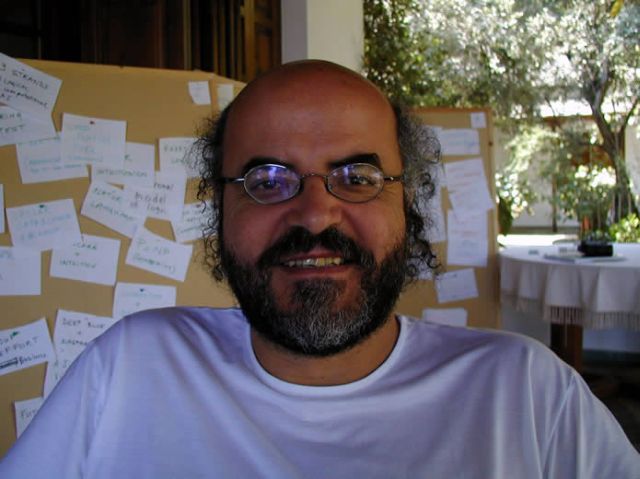Photo: newsnetwork.mayoclinic.org
Professor of computer sciences at University of California, Berkeley, Christos Papadimitriou, along with his colleagues, created an "algorithm" to explain sex in terms of evolution and on the basis of the "games" that genes play.
The computer scientists and evolutionary biologists, who published the scientific article in the US Proceedings of the National Academy of Sciences (PNAS), worked as a team to throw more light on the mysteries that still surround sex, 155 years after the publication of Charles Darwin's fundamental work "On the Origin of Species".
The new algorithm explains how sex allows recombination of genes in a new organism and, along with natural selection, produces the increasing diversity in life.
The question that has always drawn the attention of biologists is how natural selection leads to the creation of organisms with the desirable genetic characteristics that are durable over time. Sex has always been a paradox because it allows recombination of genes between the two parents, which, however, has two sides - one positive (the creation of "good" genes) and one negative (the creation of "bad" genes).
Christos Papadimitriou used a new approach. This spring the Greek scientist initiated the conduct of a multidisciplinary meeting at Simons Institute for the Theory of Computing at the University of California, Berkeley, involving theoretical computer scientists, biologists, physicists, mathematicians and specialists in statistics in order to analyze the evolution and sex in terms of the theory of computing and gaming. The result of this seminar is the scientific publication in the US edition Proceedings of the National Academy of Sciences (PNAS), headed by the Greek scientist.
As stated by Papadimitriou, "genes have a preference for a 50-50 distribution rather than a 90-10 distribution. If we use a gambling analogy, genes don’t want to go all-in. They want to hedge their bets. Even if there is an extremely successful genetic trait, evolution doesn’t want to let the genes for the other traits go extinct in case they are needed later."
Although each individual can be successful or not from a genetic point of view, the whole mixture of genes of mankind improves over time due to sex. In terms of games it comes to a "coordination game", the aim of which is the common good. "As far as games go, coordination games are the most boring because there is no conflict", says Papadimitriou.
To describe the rules of that genetic and evolutionary "game", which is possible due to sex, the scientists have discovered a powerful algorithm, one form of which is already used in finance as a method for managing stock portfolios.
Ultimately, the composed logic of nature is the same as that of a reasonable investor, namely to have a fairly distributed investment in multiple genes (or stocks) and to continuously adjust the share or weight of each gene (or stock), depending on the changes in the natural environment (or in the financial markets). If a gene (stock) is doing well, then its "weight" in the body (or portfolio) increases. If not, then the gene (stock) goes into "retirement" (or out of the portfolio).
As pointed out by the researchers, such slow and patient adjustments ultimately lead to portfolios that have almost the same good yield as those that select to invest in only a few stocks.
So what is the role of sex in nature? "It is to enable this algorithm," i.e. that of a reasonable investor who "bets" on a wide range of genes (stocks), says Papadimitriou.
The researcher states that where this algorithm has been used "it does miracles. Now we are noticing that nature uses this algorithm in evolution. It makes it easier to explain why evolution has been so successful. "
Christos Papadimitriou was born in Athens in 1949.

logicomix.com
He graduated in electrical engineering at the National Technical University of Athens and then defended a doctoral thesis on computer theory at Princeton University (1976). He taught at Harvard, ΜΙΤ and Stanford in the USA, and currently teaches at the University of California, Berkeley.
His research work focuses on the theory of algorithms, computational complexity and theory of games. He has published over 300 original scientific articles and numerous scientific books (Elements of the Theory of Computation, Computational Complexity, Combinatorial Optimization: Algorithms and Complexity), which are considered classic works in their field.
In addition to his scientific work, Papadimitriou is also known for his cooperation with Apostolos Doxiadis, with whom he created the international bestselling graphic novel Logicomix. The Greek scientist is also the author of the novel Turing, (A Novel about Computation) (Livanis Publishing House, 2003). Christos Papadimitriou is a member of the American Academy of Arts and Sciences and the National Academy of Engineering of the United States and the winner of numerous awards, including Charles Babbage Award and the Κatayanagi Award.